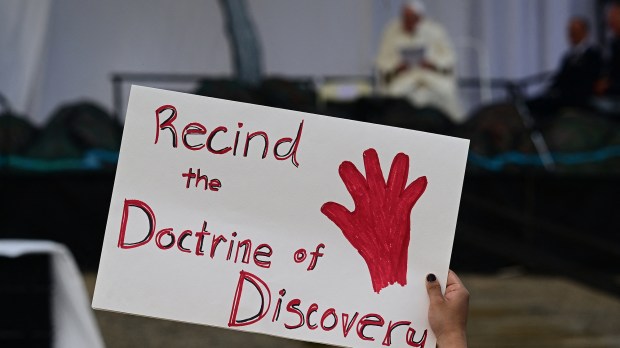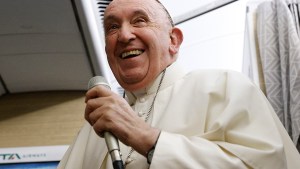Monday 1 August 2022
1. The Vatican is not the only one to think in terms of centuries
2. Documents reveal diplomacy between Vatican and Brazil during World War II
3. Energy is needed to serve the Church today
The Vatican is not the only one to think in terms of centuries
During Pope Francis’ trip to Canada, many people called on him to repeal the ‘Doctrine of Discovery‘, a set of 15th century papal bulls that encouraged the colonization of the Americas. John Allen, editor of Crux, points out that this call for repeal goes back at least to 1992, and has been made several times. However, he says that “anyone pressing Francis to revoke these documents doesn’t understand how the church works.” When the Church wants to “change gears,” Allen points out, it “doesn’t disavow previous papal edicts so much as ignore them.” This is what the Pope has already done with his persistent rejection of colonialism and his advocacy for indigenous rights, the American Vatican expert explains. Nonetheless the Canadian bishops and the Vatican will be looking more deeply into the issue. “Whether that’s enough for Indigenous persons, who are as expert in thinking in centuries as the most old-school Vatican monsignore, remains to be seen,” the journalist concludes.
Crux, English.
Documents reveal diplomacy between Vatican and Brazil during World War II
A Brazilian researcher studying in Italy, Jair Santos, had access to the Vatican’s Apostolic Archive and analyzed the correspondence between Pope Pius XII and the Getulio Vargas government in Brazil during the Second World War. The letters show that although the Brazilian authorities were skeptical they eventually reached an agreement with the Vatican to issue 3000 visas for Jews who had converted to Catholicism. However, documents now show that only 959 visas were ultimately issued and Santos explained that he needs to keep delving into the archives in the Vatican and in Brazil to understand what happened. As to why the Vatican chose Brazil in particular for this deal, Santos suggests it is because of the “familiarity” between Pius XII and his hierarchy and the Brazilian context. The Holy See knew that Brazil was open to immigrants and needed them for “social, economic and religious reasons.” Additionally when the President Getulio Vargas came to power in 1930 one of the first things he did was seek the support of the Church, Santos explains. Also before becoming Pope, Cardinal Pacelli had been to Brazil in 1934 and established good relations with the authorities.
Veja, Portuguese.
Energy is needed to serve the Church today
In an opinion article Lucetta Scaraffia, Italian historian and journalist who edited for many years Donne, Chiesa Mondo by L’Osservatore Romano, contextualizes the Pope’s comments on a possible resignation in the future. She explains that “the contemporary papacy, […] involves many ‘in-presence’ missions and continuous interventions on world problems.” A pope today cannot limit oneself to simply being “a symbol of the unity of the Church,” she continues. However, at the same time, the current pontiffs are dealing with the fact that humans now live longer but without the same “strength and efficiency” as in their younger years. “Old age, with its fatigues, aches and pains and limitations also affects popes, and endangers their mission,” Scaraffia claims, applauding Pope Francis’ decision to talk openly about the possibility of resigning. Scaraffia argues that removing “the aura of sacredness that surrounds the ‘Holy Father,’” by talking about resignation is good for the Church and is another way in which Pope Francis is “combating clericalism.”
Quotidiano.net, Italian


